Data Portals
Author: Arnold Nagy, Central European University (Budapest, Hungary)
Data portals are databases which are accessible through some form of networking or communication protocol. Their popularity and diversity underscores their importance to environmental practitioners, and their key role in information dissemination and management.
TECHNOLOGY NOTES:
- An overwhelming majority of environmental databases have an associated data portal (with one or several networking protocols, access and data sharing policies, etc.); therefore, data portals have virtually become synonymous with information databases.
- Can contain any/all information types, from in-situ, raw sensor data, to derived analytical products (e.g. forecast maps, simulation-driven scenarios), with varying degrees of validation, quality control and associated documentation.
- Data may or may not be spatially and/or temporally explicit.
- Rapid growth of web-based data portals with mapping capabilities.
- An important trend in international, large-scale collaborative research is to facilitate access to source and derived data/information through dedicated data portals.
DATA PORTALS FOR WATER MANAGEMENT AND WATER SECURITY
An ever-growing number of data portals support the work of scientists and decision-makers searching for information on water resources. Some of these are global repositories of water data, others cover particular data types (e.g. geospatial information), while some focus on specific topic areas (e.g. flood and drought forecasting models).
In the following section, we provide links/snapshots of some of the main online data portals for water resources management. A miriad of other data portals exist; as always, practitioners are encouraged to explore as many as possible, in order to find the best available data for their projects.
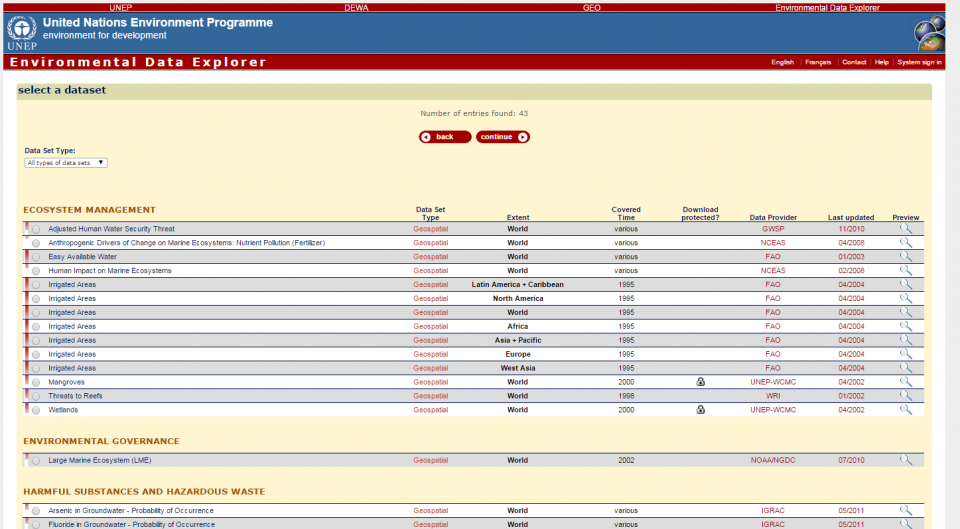
UNEP Environmental Data Explorer: http://geodata.grid.unep.ch/
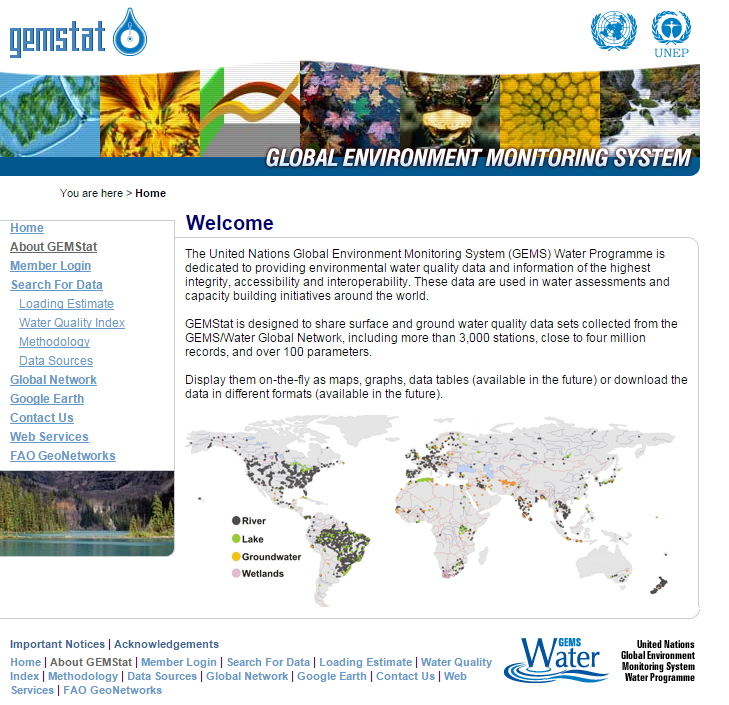
United Nations Global Environment Monitoring System (GEMS) Water Programme http://www.gemstat.org/
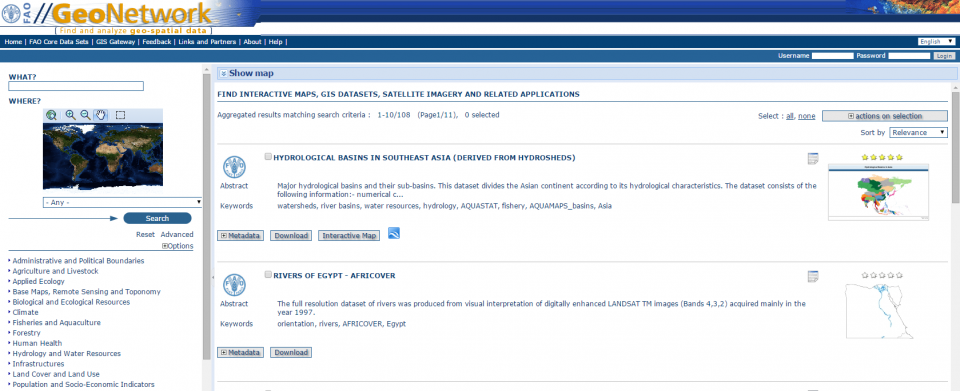
FAO's GeoNetwork: http://www.fao.org/geonetwork/srv/en/main.home
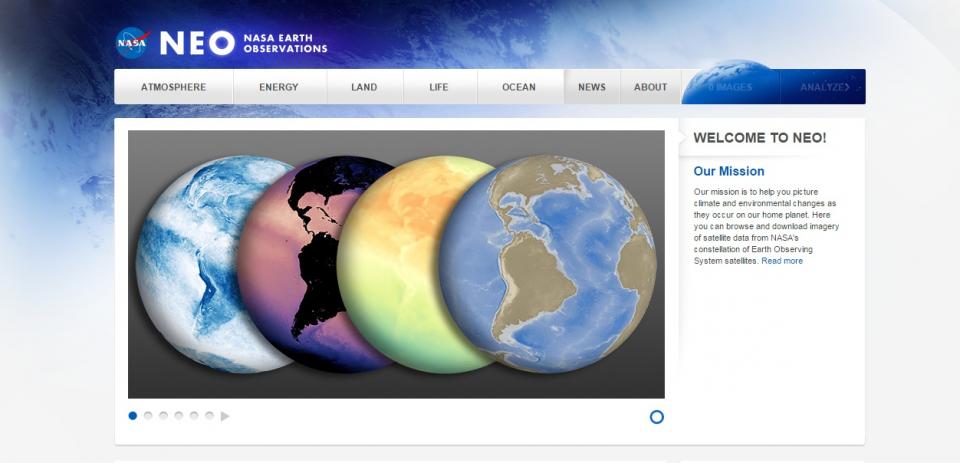
NASA Earth Observations (NEO): http://neo.sci.gsfc.nasa.gov/
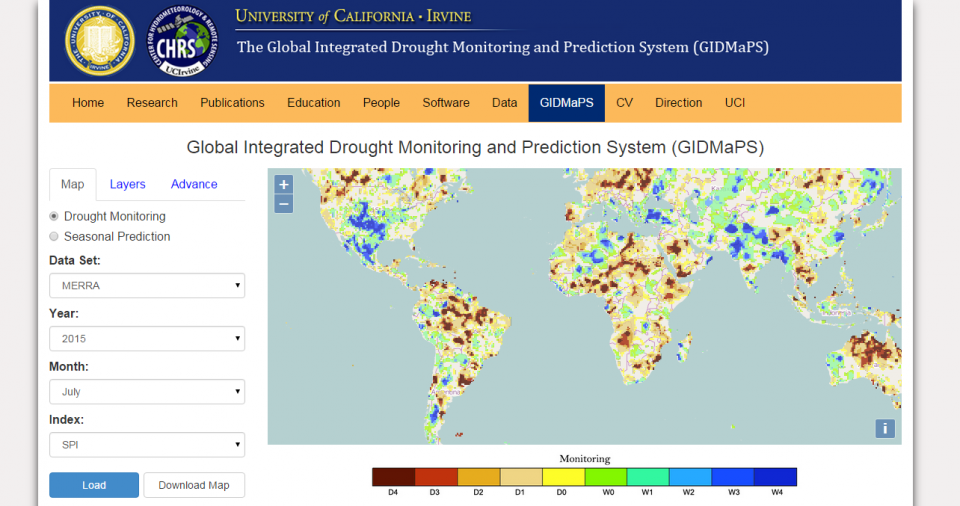
Global Integrated Drought Monitoring and Prediction System (GIDMaPS): http://drought.eng.uci.edu/
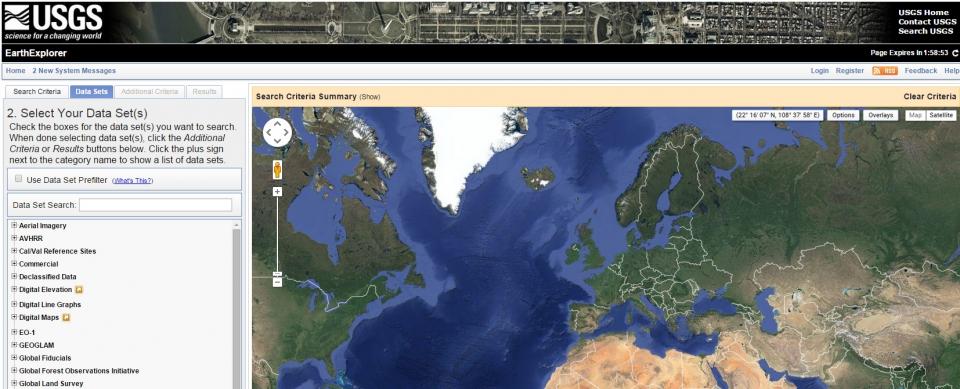
USGS Earth Explorer: http://earthexplorer.usgs.gov/
_
